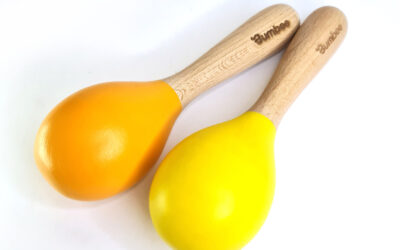Children possess an innate curiosity and a thirst for knowledge that makes their early years crucial for their overall development. During this critical period, children between the ages of 1 and 6 experience rapid brain growth and acquire essential cognitive, emotional, and physical skills. In this blog article, we explore the importance of educational toys in stimulating and shaping young minds during this formative stage.
- Stimulating Sensory Development
Educational toys play a fundamental role in stimulating a child’s sensory development. At a young age, children rely heavily on their senses to understand the world around them. Toys that engage their senses of sight, touch, sound, and sometimes even taste and smell, can enhance their sensory perception. For instance, toys with vibrant colors, different textures, and interactive features allow children to explore and discover through their senses, promoting brain development and cognitive growth.
- Promoting Cognitive Skills
Educational toys are designed to foster cognitive skills, such as problem-solving, critical thinking, and logical reasoning. Puzzles, building blocks, and shape sorters, for example, encourage children to think analytically and develop spatial awareness. These toys challenge young minds to understand concepts like cause and effect, spatial relationships, and patterns, enhancing their cognitive abilities and laying a foundation for future learning.
- Encouraging Language Development
Language acquisition is a pivotal milestone in a child’s early years. Educational toys that facilitate language development can have a profound impact on a child’s communication skills. Toys that incorporate sounds, words, or letters enable children to develop vocabulary, improve pronunciation, and enhance their listening and speaking abilities. Interactive toys, such as storytelling puppets or alphabet puzzles, encourage children to engage with language, promoting both literacy skills and a love for reading.
- Fostering Social and Emotional Growth
Educational toys not only focus on intellectual development but also play a vital role in nurturing social and emotional growth. Toys that encourage cooperative play, sharing, and turn-taking help children develop essential social skills, including empathy, teamwork, and conflict resolution. Additionally, dolls, stuffed animals, and role-playing sets provide opportunities for children to express emotions, foster creativity, and develop their imagination. These toys enable children to understand and process different feelings, promoting emotional intelligence.
- Enhancing Fine and Gross Motor Skills
Physical development is a crucial aspect of a child’s growth, and educational toys can contribute significantly to enhancing fine and gross motor skills. Toys like building blocks, threading beads, or puzzles require precise hand-eye coordination, thereby improving dexterity and fine motor skills. On the other hand, toys that promote physical activity, such as balance boards or tricycles, aid in developing gross motor skills, coordination, and body strength. By engaging in active play with educational toys, children develop both their physical abilities and overall fitness.
Conclusion
Educational toys are not merely objects of entertainment; they are powerful tools that foster holistic development in children between the ages of 1 and 6. Through sensory stimulation, cognitive challenges, language development, social interaction, and physical engagement, these toys lay the groundwork for future learning and shape young minds in profound ways. By providing children with appropriate educational toys, parents and caregivers can actively contribute to their overall growth and set them on a path of lifelong learning and curiosity.



0 Comments